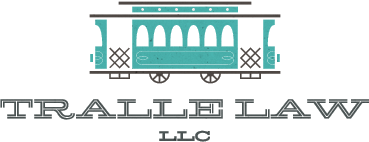What Do I Do When: I’m Thinking About Getting a Divorce
October 12, 2016
There are four important first steps people should try to do before they file for divorce.Call an Attorney
I cannot stress enough the importance of talking with an attorney at the very beginning of this process. The attorney can give you an overview of the divorce process in Minnesota. This information is helpful in determining whether you should file quickly, or if waiting a few months might make more sense. Whether you should move out of the house - or not. The initial consultation can give you information about child custody, parenting time, child support, and spousal maintenance. And if you find a really good attorney, you will find out if your assumptions are correct or not.
There have been many times when I talk to someone who has been separated from their spouse for a year or more before they talk with an attorney. People in this situation run the risk of some things no longer being their decision. The courts will look at their property and parenting time arrangements differently than people who are still living in the same household.
Sometimes it will take two or three phone calls to find an attorney that works best for you. Click HERE to learn more about what to look for in a family law attorney.
That initial consultation can also give you a “to-do” list of additional information and tasks you need to complete. I’ve listed three common ones below.
Locate Statements for All Debts and Assets
It is crucial that you know where and approximately how much your debts and assets are – especially if historically you weren’t the “money person” in the relationship. Where are you checking and savings accounts? Are they joint accounts? Are they individual? Do you have multiple accounts at multiple financial institutions? And what is their current statement? If you have this information prior to the divorce, you’ll know if a large sum of money has been recently moved.
Just as it’s important to know what your assets are, it’s equally important to know the debts. Do you have a mortgage? Personal loans? Student loans? Credit cards? Are they in both names, or individually in your name or your spouse’s name? What are the balances on the debts? Were they incurred during or prior to marriage?
Plan a Monthly Budget
Do you know what you spend on groceries each month? What you spend on utilities? How much you spend at Target? Many people do not have accurate figures in these categories. Not only is it important to know what your current monthly budget is, but what your monthly budget will be after you separate households. It is almost always more expensive to run two households.
Can you afford your house payment on your salary alone? That will indicate whether you may need to move, sell your house, or find more affordable housing. It may also indicate a need for spousal maintenance.
You also need to take a hard look at your own income. Do you have a job that covers your monthly expenses? Will you require spousal maintenance or child support? Do you need to start looking for a better job? Or have you been out of the workforce, and now must find a job? Sometimes a local community college or vocation evaluator can help with re-entry into the workforce.
Talk to Your Spouse
Talking with your spouse is an important first step. Many couples have discussed the possibility but have not discuss the actual details. What does your spouse think a fair division of the property is? What does your spouse think about parenting time or custody? Do the two of you have similar or vastly different opinions on those topics? This talk, as difficult as it will be is important to get a first look at how the divorce may be handled. It will likely also be a very difficult conversation. Recognizing the difficulty is the first step. Keeping emotions in check and not letting words permanently hurt you is the second step. Neither are easy or always possible.
I give this advice is almost all consultations. However, if domestic violence/domestic abuse is a concern in your family, this may not be one of the first things you do. Talking with a domestic abuse advocate and attorney is important. Personal safety is key. If you worry about your safety or the safety of a loved one, please contact a domestic abuse center such as The Domestic Abuse Project, or the Minnesota Coalition for Batter Women, or Tubman.

No Comments Yet
You can be the first to comment!
Leave a comment